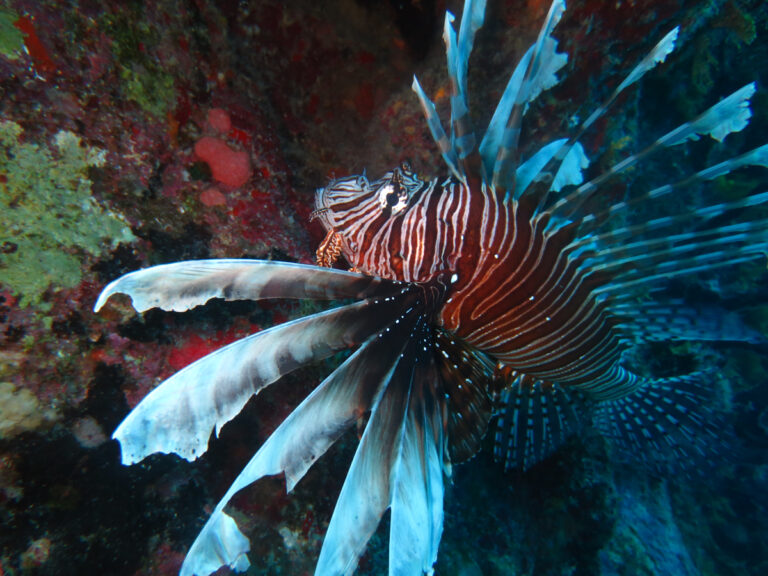A new strategy, launched on 21 February 2019 in Belize City, describes how to design and implement an integrated approach to lionfish management. Drawing on almost a decade of research into the effects of the lionfish invasion and the efficacy of different methods of control, this strategy is designed to help governments, conservation groups and other actors in the Caribbean region manage lionfish populations more effectively – and even turn the problem into an opportunity using market-based incentives.
Incorporating environmental, social and economic wellbeing goals, the report also makes specific recommendations for the adaptive management of lionfish in Belize over the next five years, with consideration of the varied, and sometimes conflicting, viewpoints of all the sectors affected by the lionfish invasion.
Blue Ventures and the Belize Fisheries Department have worked together to develop this strategy, which has involved extensive consultation with stakeholders across Belize, as well as collaboration with fisheries scientists, coral reef ecologists and social researchers.
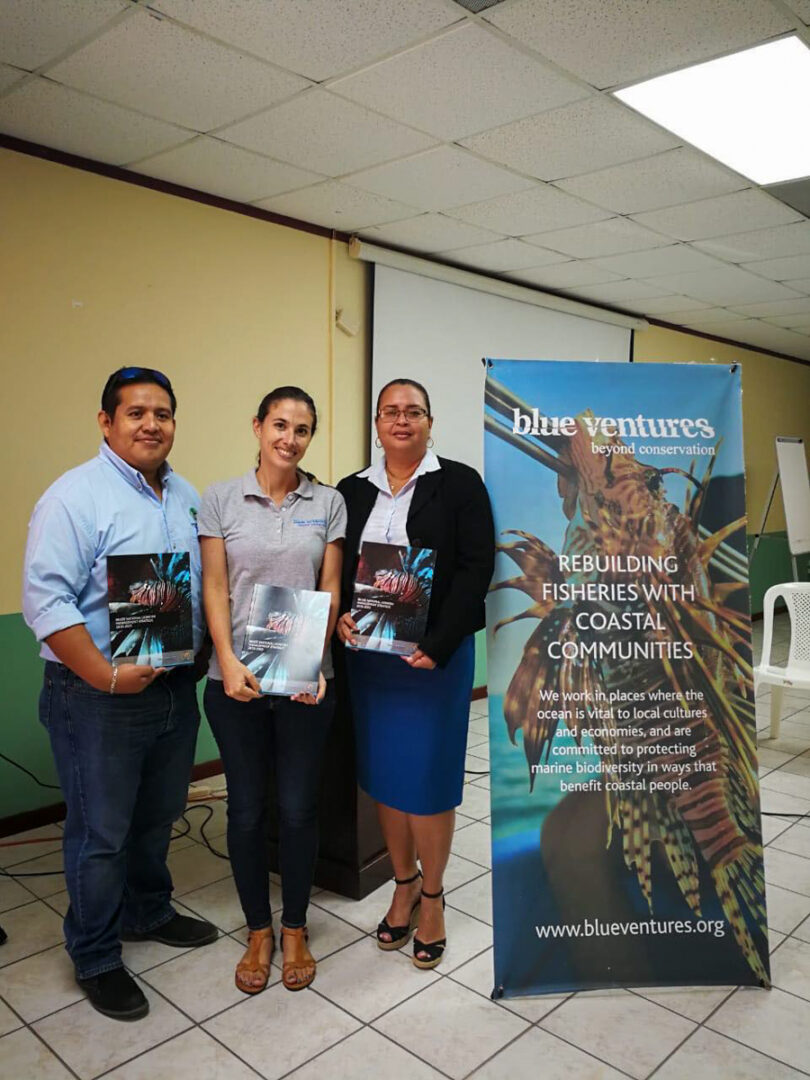
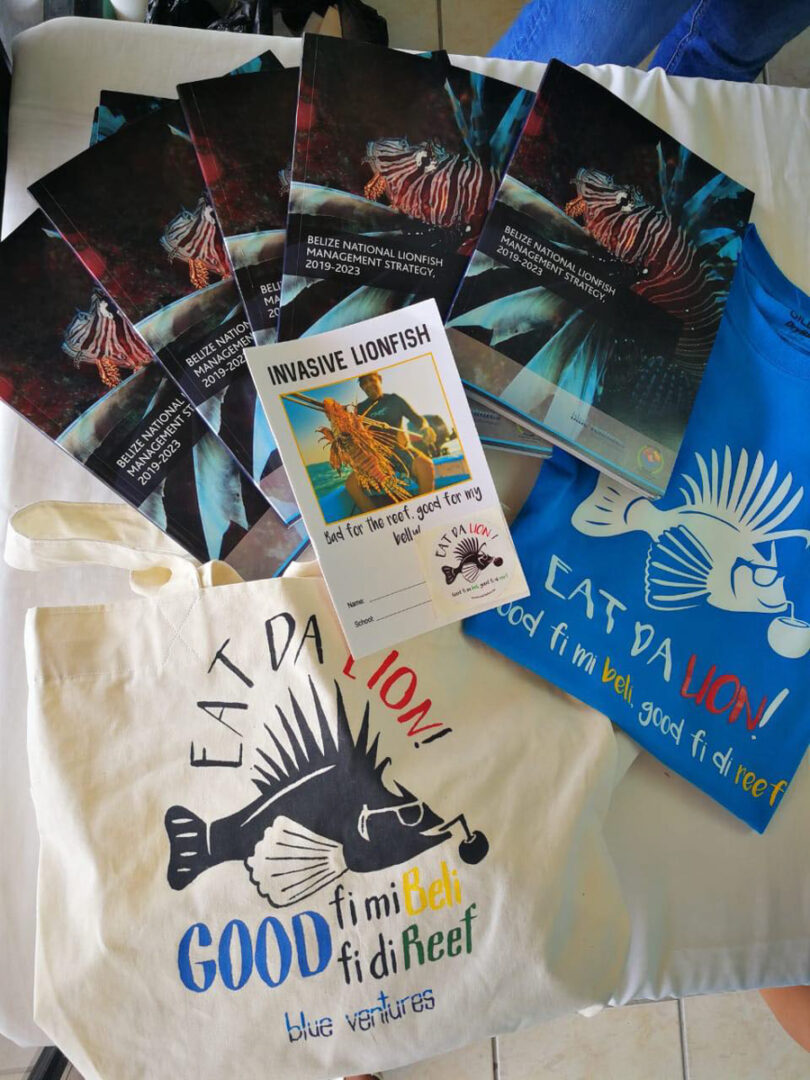
Across the Caribbean, the invasion of red lionfish (Pterois volitans) poses a pervasive threat to marine ecosystems and coastal fishing communities. First recorded in Belize in 2008, lionfish have become well established across the country’s entire marine environment. Uncontrolled, invasive lionfish populations disrupt marine food webs, negatively impacting coral reef health and fisheries productivity, thereby undermining the resilience of coral reefs and reef-associated systems to global change.
To date, lionfish control activities throughout the Caribbean have been haphazard and have not always focused on priority conservation areas. It has therefore been extremely difficult to ensure that control activities make efficient use of limited resources, are effective in achieving population control, and that they do not cause unintended or undesired outcomes. To produce sound recommendations for this strategy, an interdisciplinary team consulted with a wide range of coastal stakeholders, and used the results of in-depth social and ecological research, to examine challenges and identify opportunities around lionfish management.
The results of these surveys show that Belize has already made great progress towards achieving effective lionfish control, having adopted a multi-pronged approach involving restaurants, fishers, and SCUBA divers. We estimated that almost 90,000 lionfish were removed from Belize’s coral reefs in 2015, and dedicated lionfish surveys on coral reefs that year found that lionfish abundance was generally low. Nevertheless, ecological modelling shows that significant declines in native fish populations could be expected at almost a quarter of surveyed sites as a direct result of invasive lionfish.
The new strategy describes in detail how to address the need for increased lionfish control, including how to use market-based incentives to achieve frequent and large volume removal of lionfish from coral reefs. Importantly, it highlights that lionfish management should aim to “protect and improve livelihoods of all Belizeans” in addition to fulfilling the environmental goal of lionfish population suppression. Social research conducted in 2015 and 2016 demonstrates that markets for invasive lionfish meat and fins have the potential to deliver both social and economic benefits to coastal communities.
“When lionfish first appeared in Belize’s waters over ten years go, no one knew how best to address this new threat, but we all knew that something needed to be done. Everyone got involved – from fishers and tour guides, to restaurants and conservationists, and the launch of this strategy represents a big step towards closer collaboration. We are now well-equipped with knowledge, and ready to work together to effectively address the direct threats of invasive lionfish, and also to flip the problem on its head and use lionfish control activities to create new economic opportunities.”
– Jennifer Chapman, Blue Ventures Country Manager, Belize
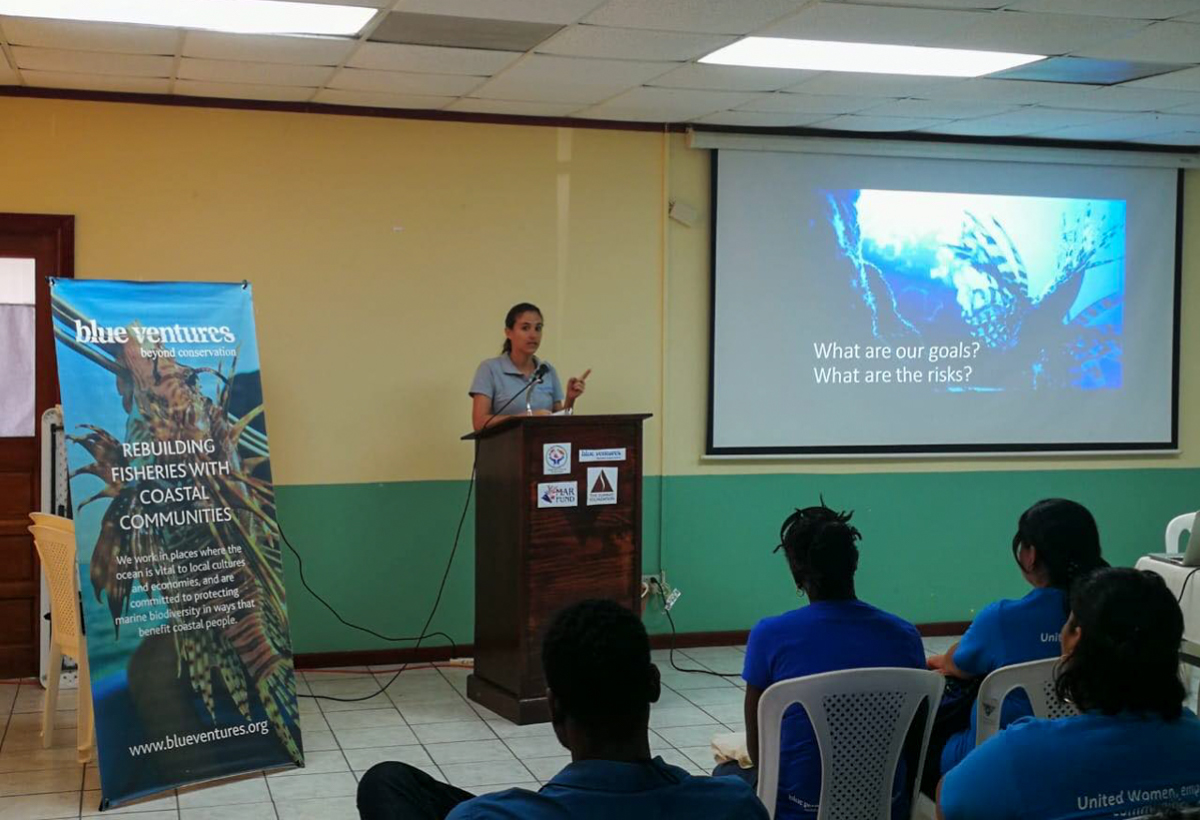
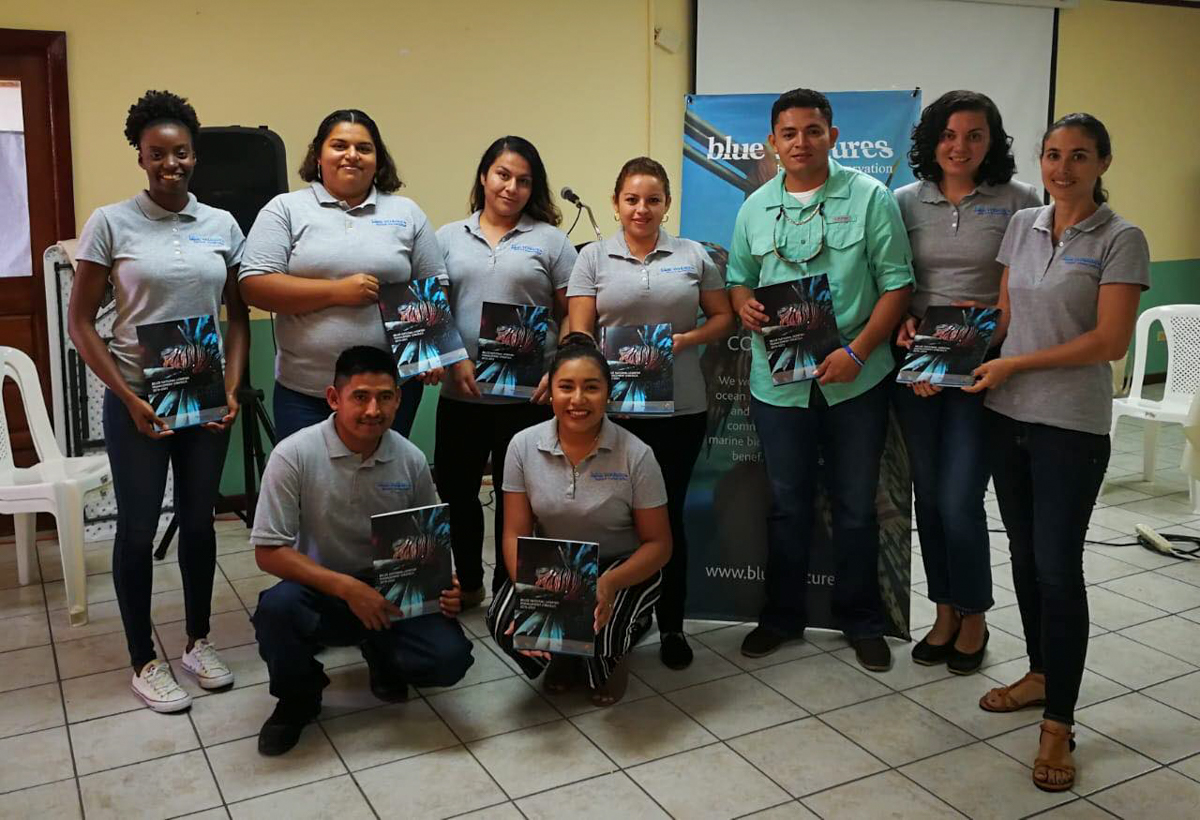
In keeping with recommendations made in the Regional Strategy for Lionfish Control in the Mesoamerican Reef (2014), a multisector Lionfish Working Group was launched alongside the strategy report, responsible for guiding lionfish management efforts in Belize. Forty-seven people attended the strategy launch, and 13 organisations including Blue Ventures joined the Lionfish Working Group and attended its first meeting, which was held immediately after the launch.
This multi-disciplinary working group, with representatives of fishing and tourism industries, as well as NGOs and government, is tasked with implementing the strategy and coordinating control efforts. Whilst the initial membership of this working group has already been established, if you are eager to join then please email [email protected] with a short description of your interest.
Access the report: Belize National Lionfish Management Strategy, 2019-2023
For more information: Contact Jennifer Chapman [[email protected]]
Read the coverage of the strategy launch in the Belizean press: Lionfish management hits the headlines in Belize

